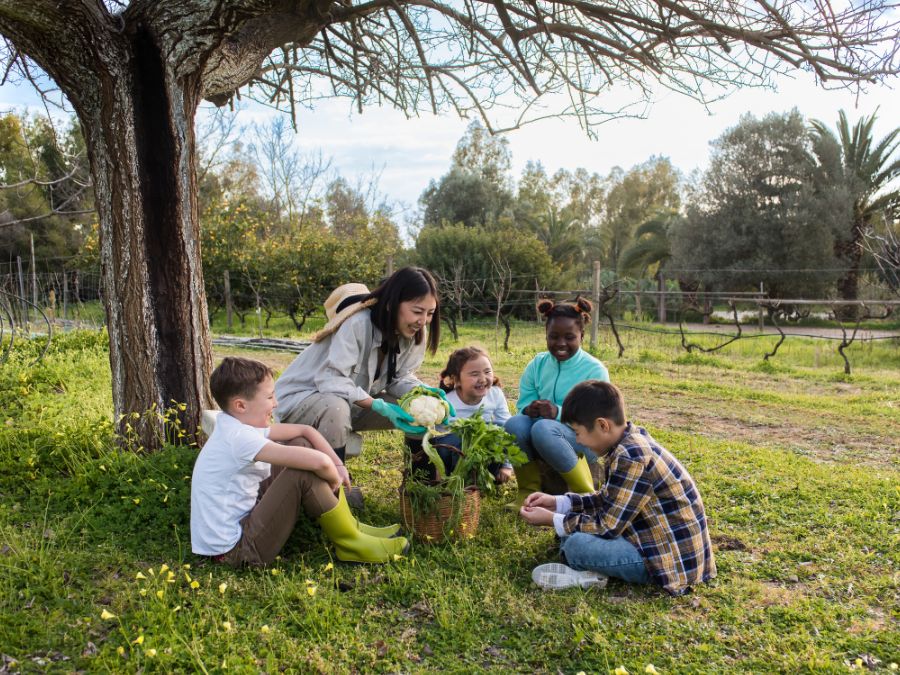
Following the recent release of their new app for mothers, Drs. Barry Zuckerman and Cyndie Hatcher spoke with HOPE Research Assistant, Loren McCullough about how the questions, information, and parent videos provided in Small Moments: Big Impacts (SMBI) can brighten the outcomes of parents and children. Dr. Cyndie Hatcher also discussed her experiences working with parents in primary care settings, and her use of SMBI’s resources to encourage growth of the 4 Building Blocks of HOPE for families.
Dr. Hatcher – Could you tell us a bit about yourself and your work on Small Moments: Big Impacts?
Dr. Cyndie Hatcher (CH): My interest in Small Moments has been truly captured by my entry into motherhood. I noticed my interactions with my patients changed tremendously because I was able to have that first-hand experience of the challenges that every mom has… Not just the challenges of taking care of a child, but [also] taking care of yourself, and the loneliness and the exhaustion on a day to day basis! And I did not understand that at all before I became a mother.
And so after experiencing it for myself, [I saw] that there is this huge opportunity for providers to meet families where they are post-partum! I now understood that we can be engaging them and actually normalizing these experiences. Instead of just weighing the baby, and [say something] like, “Oh, the baby’s growing!”, we can relate with families more about their home supports for baby, trusted individuals for the family, and their goals, among other things. The visit could be so much more uplifting for mothers!
That really is what drew me to Small Moments – it’s filling an unmet need, and reaching the heart of [the supportive] physician to family relationship we want.
Could you address how you think Small Moments: Big Impacts supports the Four Building Blocks of HOPE?
Dr. Barry Zuckerman (BZ): One of my goals in doing this [was that] I really wanted to create something scalable that all parents could get. I’ve started [similar] programs, and they spread because they met an unmet need, but the limitation was always cost. So I did not want money to be a barrier to this critical information.
CH: The app is completely free. This is a resource that we want every family to be able to access – not just those who can afford it.
SMBI truly is getting at the emotions that a mom deals with [having] a baby that is less than six months, and the challenges that exist – it doesn’t provide answers to typical health questions that people assume you get from a medical app. But it does provide some information about how to promote wellbeing, mindfulness, and reflection. So [SMBI provides] an opportunity to reflect on things. It prompts you to reach out to your social networks, and to the people you love and care for. In a way I think it does bridge that gap for families who have [limited] access to these resources. I think there’s so much bundled [together] that families who otherwise wouldn’t have been able to access these things are getting it in our app.
BZ: In my experience, most of the [medical health apps] have good or even great information but are not really engaging – so the goal was engagement. We went really to the heart of a mother’s emotions, both positive and negative, because that’s just part of the real world. And in the videos, the mothers talk about their stresses and past history, which includes adversity, but also their hope and aspirations.
There’s one section in text about baby science – it’s a small bit of developmental information about sleep durations, crying durations, and other things. There’s [another] one called the “Mood Meter,” and it has about six different moods that are positive and negative. We tell a mother they can pick [multiple moods], because everyone has more than one per day! And there are all these reflection questions after that, with the hope that they will either speak to their provider or their support system. There is a section “About You,” which provides information about mothers’ health and well-being…
The other thing that was interesting that the mothers [who assisted with development] actually wanted – they told us music and humor were important! So each week starts with a catchy tune and a cartoon.
Dr. Hatcher, how has SMBI Impacted the way you work with families in a primary care setting? Have you seen the app contribute to families building positive experiences for children?
CH: So I have some videos [from the app] that I feel are pretty generalizable and fit most of my families. And [in a] clinic visit, once I’ve addressed any acute concerns that the families have, I’ll play [a] video! And I’ll ask the family “What do you think?”
There’s [one] video where the mom talks about her hopes, dreams and aspirations for her baby. It’s beautiful. I played it for a mom, and [after watching the video] she got quiet. She looked at me and said, “You know what, Dr. Hatcher, I want him to live to adulthood.” Like, woah.
I asked her to tell me more about that, and she tells me that all the [men] in her family either get incarcerated or die from gun violence before they become adults. And she really wants him to get out of the hood and just live. I learned so much more about this mom [from that visit], about her experience living in that part of Boston, and about the family trauma she experienced. Way more than I ever would have in a clinic visit where I just did my checkboxes. And she was surprised that I cared to hear about it!
We were able to work with them and the housing authority and get them out of that area. They’re in a new area – they are thriving and [the baby is] not a baby anymore! And without Small Moments, I’m not quite sure we would have ever gotten there – it wouldn’t have been on the agenda. So I can see tangible proof that the app changes outcomes.
Can you speak about this work in relation to health equity, and increasing access for underrepresented communities or communities of color?
CH: One of the things that we felt strongly about is that we wanted families that reflected our patient population. At [Boston Medical Center (BMC)] we have such a diverse patient population; it’s one of the best things about our hospital. And so we have moms from every walk of life in the app.
We have moms who are from the Caribbean, we have moms who are from different parts of Africa. Moms who have to deal with immigration issues, who are discriminated against, who have dealt with trauma, or who had experiences with substance abuse. The diversity is real – and I mean that in every sense of the word, in that these are real people with real experiences.
As someone from a Caribbean-American background, patients portrayed in the media don’t often look like me. I think when moms look at other moms who are from backgrounds that they relate to, that does give them hope! Like “Wow, look at that mom. She’s able to talk about this without feeling ashamed, [and] her experiences sound like mine. I’m not alone.
We also talk in the app about the relationship between families and their providers, and finding good fit for the family. There are moms who talk about their challenges with previous providers. As a person of color working with families of color, there has been talk about not feeling like there is a choice or feeling discriminated against in the medical setting. And I think saying “There is a choice, and we want families to know that we recognize this is a problem,” that also speaks to HOPE and to making it clear that we are supporting something better for our families.
Is there anything we haven’t asked about that you would like to share?
CH: Since COVID and the changes [to clinic visits], I’ve started having families [do homework after watching] a video with me in the clinic! We’ll talk about it briefly, but then I’ll ask them, “I want you to go home and make a video of how you feel [dealing with a significant life experience.] What are the feelings you have about it, your worries or anxieties? Then send it to me, or bring it to your next visit and we can talk about it. Because you’re never going to feel this acutely about it ever again, so just capture it for me.” [I also make it clear that the videos will not be shown to anyone else.]
Believe it or not, moms are excited about doing it! And the families actually bring them back! We watch them together, and then I just learn so much about families lives [while they explain what is happening in the videos and in the background]. It’s been amazing, it’s been really beautiful. So I think it’s been a nice way to [both] engage families and get them to document these amazing parts of parenthood, and also [for me to learn] about the family structure and the things [they] prioritize. So I’ve just been loving [that].
Small Moments Big Impact (SMBI) can be downloaded for free from the App Store for iOS phones or on the internet at www.smallmomentsbigimpact.com. Information is available online in English and Spanish.
Photo by Larry Crayton on Unsplash


